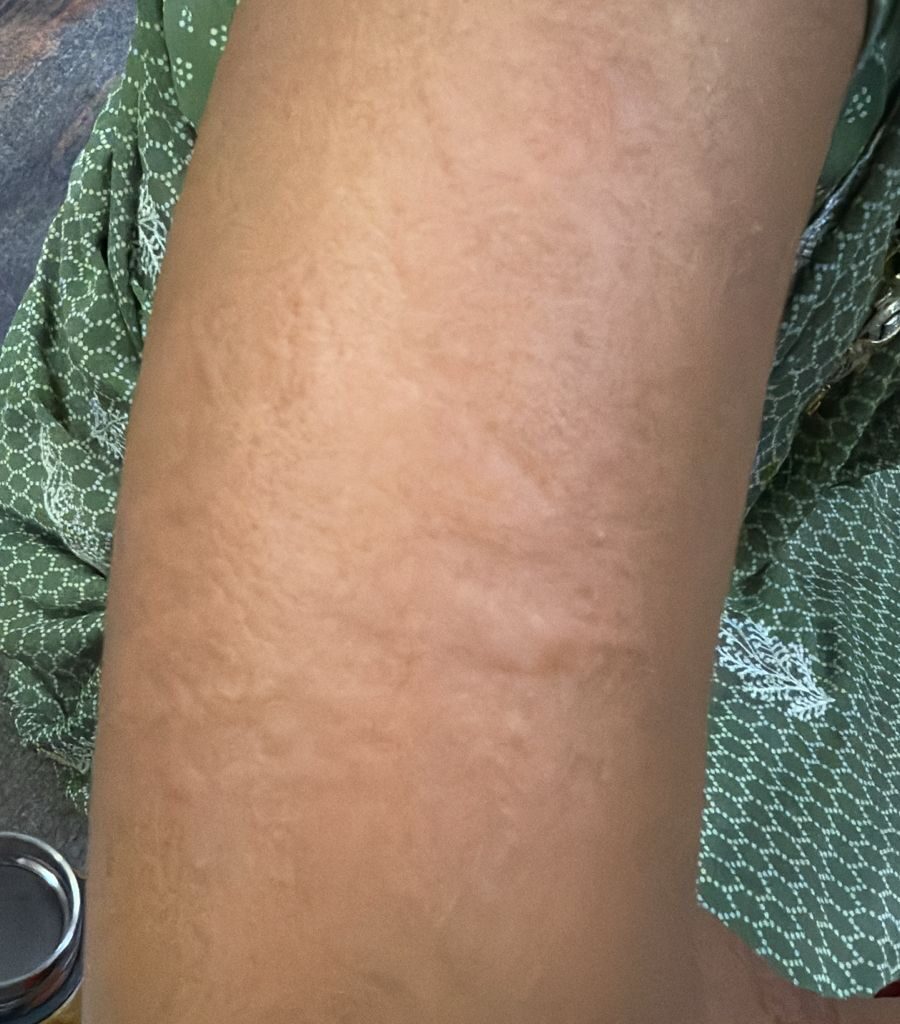
Homeopathy for Urticaria
Introduction
Urticaria, commonly known as hives, is a frequent skin condition characterized by sudden appearance of itchy, red or skin‑colored swellings (wheals) on the skin. These lesions may vary in size, change location, and usually disappear within hours to days. Though often considered a minor allergic reaction, chronic urticaria can significantly affect quality of life due to persistent itching, discomfort, disturbed sleep, anxiety, and cosmetic concern.
What is Urticaria?
Urticaria is a hypersensitivity reaction of the skin caused by the release of histamine and other inflammatory mediators from mast cells. This leads to increased permeability of blood vessels, resulting in localized swelling and redness of the skin.
Types of Urticaria
Acute Urticaria – Lasts less than 6 weeks; commonly triggered by food, drugs, infections, or insect bites.
Chronic Urticaria – Persists for more than 6 weeks; may last for months or years. Often idiopathic or autoimmune in nature.
Physical Urticaria – Triggered by physical factors such as:
Cold (cold urticaria)
Heat or sweating (cholinergic urticaria)
Pressure (delayed pressure urticaria)
Sunlight (solar urticaria)
Angioedema – Deeper swelling involving lips, eyelids, face, throat, or genitals; may coexist with urticaria.
Causes and Triggers
Food allergies (nuts, eggs, seafood, milk)
Drug reactions (antibiotics, painkillers, vaccines)
Infections (viral, bacterial, parasitic)
Autoimmune disorders (thyroid disease)
Stress and emotional factors
Environmental factors (dust, pollen, cold, heat)
Hormonal changes
In many chronic cases, no single cause is identified, which can be frustrating for patients.
Symptoms
Sudden appearance of raised, red or pale wheals
Severe itching or burning sensation
Lesions that change shape, size, and location
Swelling of lips, eyelids, face (angioedema)
Symptoms worse at night or after stress
Diagnosis
Urticaria is mainly a clinical diagnosis. Investigations may be advised in chronic cases to identify underlying causes:
Complete blood count (CBC)
ESR / CRP
Thyroid profile
IgE levels
Allergy testing (if indicated)
Conventional Treatment – Limitations
Conventional management mainly includes antihistamines and steroids, which may provide temporary relief but do not address the root cause. Long‑term use can lead to recurrence once medicines are stopped and may cause side effects, especially in children.
Homeopathic Approach to Urticaria
Homeopathy offers a gentle, safe, and holistic approach to urticaria by addressing the individual’s immune response, internal sensitivity, and emotional triggers.
How Homeopathy Helps:
Reduces frequency and intensity of attacks
Controls itching and burning without sedation
Strengthens immune balance
Addresses emotional and stress‑related triggers
Safe for infants, children, pregnant women, and elderly
Aims for long‑term relief, not suppression
Individualized Treatment
Homeopathic medicines are selected based on:
Nature of eruptions (itching, burning, color)
Modalities (better/worse from heat, cold, night, pressure)
Associated symptoms (digestive issues, respiratory allergies)
Emotional profile (anxiety, anger, stress, sensitivity)
Commonly used remedies include Apis mellifica, Urtica urens, Rhus toxicodendron, Natrum muriaticum, and Sulphur, but self‑medication is not advised.
Urticaria in Infants and Children
Urticaria is common in babies and young children. Homeopathy is especially beneficial as it:
Avoids repeated antihistamine use
Supports developing immune system
Is non‑toxic and gentle
Helps in recurrent and daily episodes
Lifestyle and Dietary Advice
Identify and avoid known triggers
Maintain a food and symptom diary
Avoid excessive spicy, fermented, and junk foods
Manage stress with relaxation techniques
Maintain regular sleep patterns
Conclusion
Urticaria may appear as a skin problem, but it often reflects internal immune imbalance and emotional sensitivity. Homeopathy treats the person as a whole, offering a natural and long‑term solution rather than temporary suppression. With correct diagnosis, individualized treatment, and lifestyle support, patients with both acute and chronic urticaria can experience lasting relief and improved quality of life.









